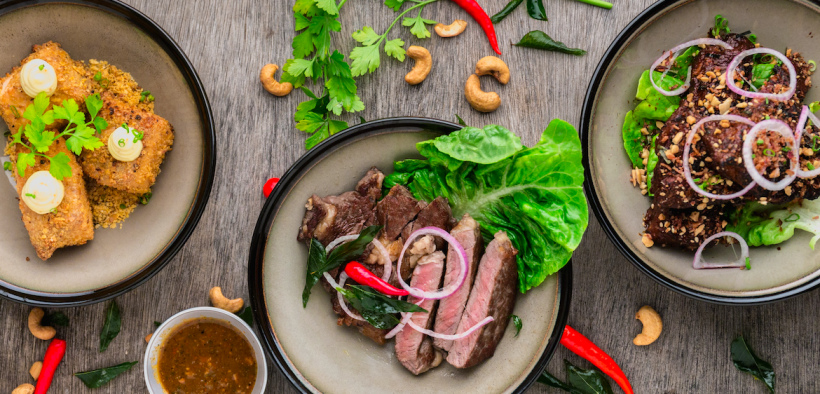What Is Intuitive Eating Anyway?
Share

It all began on the unlikely set of Good Morning America. Evelyn Tribole was on the air when the broadcast giant’s next guest failed to arrive. Tribole was on the spot to talk about whatever came to mind for the next 2 ½ minutes, and she fortuitously chose the topic of insatiable hunger. Albers, a writer for Huffpost, states that a forward-thinking publisher gave Tribole a call soon after watching the segment and told her, “I think you may have a book.”
Tribole and her co-author, Elyse Resch, published their first edition of Intuitive Eating: A Revolutionary Program that Works in 1995, and it was a smashing success. On their official website, Tribole and Resch define intuitive eating as “a personal process of honoring health by listening and responding to the direct messages of the body in order to meet your physical and psychological needs.” Basically, it is a way of eating that follows ten specific principles designed to encourage healthy and guilt-free relationships with food.
A summary of the 10 Principles of Intuitive Eating:
1. Reject the Diet Mentality
Throw out the diet books and magazine articles that offer you false hope of losing weight quickly, easily, and permanently.
2. Honor Your Hunger
Keep your body biologically fed with adequate energy and carbohydrates.
3. Make Peace with Food
Give yourself unconditional permission to eat.
4. Challenge the Food Police
Scream a loud “NO” to thoughts in your head that declare you’re “good” for eating minimal calories or “bad” because you ate a piece of chocolate cake.
5. Respect Your Fullness
Listen for the body signals that tell you that you are no longer hungry.
6. Discover the Satisfaction Factor
When you eat what you really want, in an environment that is inviting and conducive, the pleasure you derive will be a powerful force in helping you feel satisfied and content.
7. Honor Your Feelings Without Using Food
Find ways to comfort , nurture, distract, and resolve your issues without using food.
8. Respect Your Body
Accept your genetic blueprint.
9. Exercise–Feel the Difference
Forget militant exercise. Just get active and feel the difference.
10. Honor Your Health–Gentle Nutrition
Make food choices that honor your health and taste buds while making you feel well.
Some well-read foodies might question the difference between intuitive eating and mindful eating. The short answer is that intuitive eating is mindful eating that addresses “the importance of rejecting the dieting mentality, respecting your body (regardless of your weight or shape), coping with emotional eating, and gentle movement and nutrition without judgment.” The 10 principles are also specific to intuitive eating, so while the initial ideas may be similar, intuitive eating simply takes mindful eating one step further.
Now, that sounds well and good, but intuitive eating has also recently been a topic of extensive research and academic scrutiny. One study in particular focused on the effects of intuitive eating versus self-weighing and calorie counting in college students. Self-weighing and calorie counting was shown to result in increased eating disorder severity in comparison to intuitive eating, but “Cultivating [intuitive eating] within health promotion efforts may…lead to favorable eating-related outcomes that may translate to the holistic health of this population.”
This may hit close to home, but we all know that the freshman 15 is real and prone to exceed expectations as the years pass. It is hard to not feel guilty about weight gain, but intuitive eating might be one option to explore if your goal is to feel better about your body instead of trying to change it.
Besides the mind, intuitive eating happens to also be a healthy option for the body. While weight loss is not the goal of intuitive eating, it is sometimes a side effect of increased mindfulness toward your body and the food it consumes. Another study found that those who participated in intuitive eating “maintained weight, improved in all outcome variables, and sustained improvements,” while those who participated in diets initially lost weight, but the “weight was regained and little improvement was sustained.”
While intuitive eating might sound like just another fad, it has managed to beat the odds and stick around for over 20 years. It rejects the mentality of guilt and punishment in favor of self-love and the enjoyment of food, making intuitive eating a possible alternative to strict diets and calorie counting. Intuitive eating might not be for everyone, but it merits investigation and invites a closer look at how we treat ourselves and our food.
